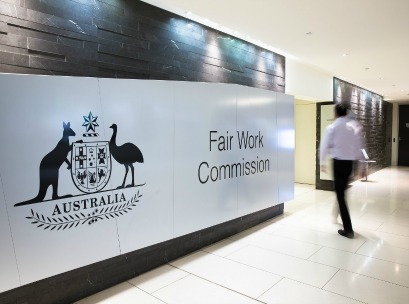 The National Retail Association has warned struggling retailers will bear the brunt of the Fair Work Commission’s decision to implement reductions to penalty rates over a four-year transitional period.
The National Retail Association has warned struggling retailers will bear the brunt of the Fair Work Commission’s decision to implement reductions to penalty rates over a four-year transitional period.
Hundreds of thousands of Australian workers will see their Sunday penalty rates drop on July 1, with deeper cuts to come over the next three years.
Unions say they will appeal the decision, while industry and retail groups say the cuts should have gone further, and faster.
Fast food, hospitality, retail and pharmacy workers will see their Sunday penalty rates drop five percentage points on July 1.
The full cuts of 25 to 50 percentage points will then be delivered by 2019 for some workers and 2020 for others.
The Fair Work Commission on Monday released its decision into the transitional arrangements for the Sunday penalty rate cut, which was announced in February.
The commission found the existing Sunday penalty rates in the four industries “overcompensate” employees for Sunday work.
“Given this conclusion, we are not satisfied that it is appropriate to impose any further delay in the implementation of our decision,” the commission’s full bench said.
But the commission acknowledged cutting Sunday rates on July 1 meant employees would only have had four months notice.
“In these circumstances, it is appropriate that the first step in the transition be smaller than subsequent steps,” it said.
Fast food and hospitality workers will receive their full cut by 2019, and retail and pharmacy workers will have their cuts phased in until 2020.
Public holiday penalty rate will drop also 25 percentage points from July 1 for fast food, hospitality, restaurant, retail and pharmacy workers.
The Australian Industry group said the transition was “cautious but fair”, despite not being as fast as it wanted.
But hospitality union United Voice secretary Jo-anne Schofield said she would appeal against the decision.
“The system has completely failed the hundreds of thousands of Australians who give up time with their loved ones to work on weekends and public holidays,” she said.
The Business Council of Australia said the transition was “sensible”, and the penalty rate decisions should be free of political interference.
Dominique Lamb, NRA CEO, said she welcomed the reductions, but added she was disappointed with the long transition period.
“Retailers need a break and they need it now, as consumers are continuing to tighten their discretionary spending belts,” Lamb said.
“We’re seeing big names like Top Shop going into voluntary administration and Australian mainstays like Oroton staring down the barrel of significant losses,” she said. “Lululemon’s sales are down, and we’ve seen others like David Lawrence, Marcs, Pumpkin Patch, Laura Ashley, Rhodes and Beckett, Herringbone, Howards Storage World, Payless Shoes, the list goes on, end up in receivership in recent times.”
Lamb said the retail industry is struggling amid soaring operating costs and increased competition so a shorter transition to reduced penalty rates would have been a welcome relief, as it would have potentially allowed them to focus on improving customer service by having more employees on the floor.
“Australian retailers are paying some of the highest wages in the world, and it’s often not viable to even open their doors on a Sunday because they can’t even cover the wages let alone turn a profit, and that doesn’t help anyone,” she said.
“This transitional period is somewhere between the SDA’s recommendations and ours, but four years is a really long time, and adds complexity to an already complex system.
“We need to return penalty rates to a more reasonable, affordable level now, in order to kick-start the industry and allow retailers to create more jobs for Australian workers,” she said.
Meanwhile the Australian Retailers Association (ARA) welcomed the decision, but said retailers will be disappointed by the length of the transitional arrangements handed down today.
ARA executive director, Russell Zimmerman said retailers were expecting to able to ramp up employment via a quick transition to more sustainable penalty rates, though asserted the announced arrangements will hinder the immediate benefit to employment and growth within the sector.
“The Commission found that a reduction in penalty rates will allow retailers to extend staff working hours and increase employment across the board, therefore these sluggish arrangements will unnecessarily delay the creation of new retail jobs,” he said.
Zimmerman said the ARA believes the Commission’s decision will be upheld in the Federal Court.
Access exclusive analysis, locked news and reports with Inside Retail Weekly. Subscribe today and get our premium print publication delivered to your door every week.





